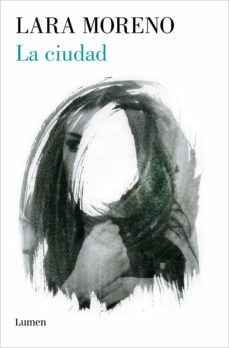

Writer Lara Moreno.
Lara Moreno (Seville, 1978) came up with the idea a few years ago and says it led her on her “deepest journey” that spanned from the time of the pandemic to months ago. It was proposed to talk about Madrid, describe it and do it through the people who live in it, without unnecessary cliches, without pity and through the eyes of the one who lives there, and not the one who walks. A hot yet cold portrait of a city that she sees every day as more hostile, more impersonal and always addictive.
“I wanted to photograph Madrid, which is what Madrid says about any big city. I never focused on the city as a narrative place, and Madrid is a complex city, with so many realities on every street, that I thought from my apartment in Plaza de la Paja that only by taking part of the center would I be able to represent them. “. he explains during an interview. Cityhis latest novel, which has just been published in Lumen.

To do this, she created three opposite women and made them match in a building on the same square where she lived in the capital. A separated Spanish woman with her son, a Hispanic who takes care of the children, and a Moroccan who ends up in Madrid after picking strawberries in Huelva.
Three different realities, but intersected by similar conflicts and located at a distance of several meters from each other. They are all mothers and all have been abused at some point. “They start from different situations, it is obvious that Oliva (Spanish) lives in a privileged position compared to others, but this does not mean that she avoids challenges,” says Moreno.
And it was she who made him go on this “such a deep journey.” “I tried to explain to the millimeter what an abusive relationship is and that this can happen to anyone. Abuse stories are always the same, it’s a matter of length before they get to physical abuse and murder, but the first chapters are always the same,” he explains, adding that he wanted to tell how, despite so many resources, “he sees themselves in danger, as well as others. And he achieves this in very quick chapters where fear, anger, frustration and disbelief are felt.
Although she knows that her danger is not the same as that of the other two women with whom she shares a leading role, and that in order to explain the reality of Madrid, she had to explain the reality of migration. “Without it, there would be no complete portrait, because big cities, and not very big ones, are a combination of cultures, nationalities…”. She focused on women who leave their countries to take care of children or clean houses “because that’s the only job they can find.” One of them opened his eyes to a reality he had never noticed. “He spent years in Huelva happily eating strawberries and I never thought about what happens in these greenhouses,” he adds of the number of people who come from Morocco to our country every year to pick it, and who come with the promise of Eden. and they often find themselves in “close to slavery” situations.
These women are brought in from very, very rural areas and must either have children or elderly people in their care in order to return.
“This is a circular migration in which they have to be protected by both countries (Spain and Morocco), and the reality is that they are quite abandoned and operate in a regime very similar to slavery. These women are brought in from very, very rural areas and must either have children or elderly people in their care in order to return. There is a book strawberry ladieswhich is cruel. It talks about the situation on the fields of Huelva and collects the testimonies of many women about how their protection has changed, what happens when they want to stay, about violence … ”, she explains.
Violence that Moreno still sees as all too common, and which he says we continue to doubt in some cases. For her, the contradiction of the new law “only yes is yes” demonstrates this theory. “I think this is a very important progress for the society, but the Spanish society is not yet ready to accept it. How many laws come out to protect women, children, when you have to open more news outlets with atrocities, and this is still being questioned … Laws are made backwards, over corpses, bullying, rape … and despite this, society goes much slower.”
Source: El Independiente